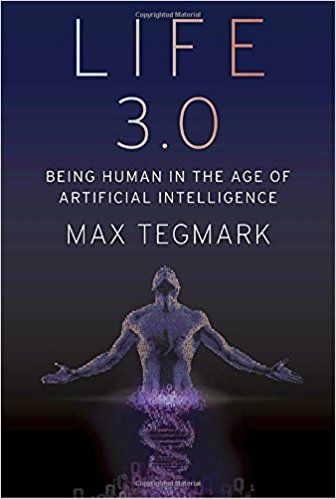Life 3.0: Being Human in the Age of Artificial Intelligence — Max Tegmark
My short review of Max Tegmark’s "Life 3.0: Being Human in the Age of Artificial Intelligence".
 Life 3.0: Being Human in the Age of Artificial Intelligence — Max Tegmark
Life 3.0: Being Human in the Age of Artificial Intelligence — Max Tegmark
"Life 3.0" begins with a short prologue: The Omega Team develops an Artificial Intelligence capable of recursive self-improvement. It is disconnected from the Internet, but contains a local copy of much of the Web. With this knowledge-base, it is put to work on Amazon Mechanical Turk, quickly earning a $1 million a day. Using that seed-money and deep-learning techniques, it soon evolves to brings $100 million a day. Next step? Encouraging the engineering teams to use their own machines to build better ones. Then comes gaining people’s trust, controlling the media, revolutionizing education, supporting a specific political agenda… At the end of this prologue, our planet is, for the first time, run by a single power: The Omegas. And Prometheus is still disconnected from the Internet.
Reading this prologue, I felt the same kind of chill I feel while watching some episodes of Black Mirror. The technology is almost there and we are not far from being able to build all this. Question is, will we use this ability for good? And… How is good defined?
The first chapter of this books defines the three stages of life, from biological to cultural and then technological. It presents the different points of view one may have towards AI, including the luddites, the techno-skeptics and the digital utopians.
The following chapters go over how matters becomes intelligent, from cells to neurons for us, going with neural networks and deep learning for machines. You’ll read about Deep Blue (strong memory and computational abilities) and Watson and DeepMind (which has an ability to learn). You’ll then read about the near future: how will AI appear, how can bugs interfere, will we use it to build weapons, what impact it could have on our jobs…
The book then goes back to the story of The Omega Team and the AI we first met in the prologue, presenting different versions of its release to the world. Will it breakout? How? And towards which scenario? "libertarian utopia" or "gatekeeper"? Maybe a "protector god" or a "1984"-like approach? Maybe we will instead end with self-destruction? Once we have covered our planet, how will the AI expand? It will need more energy (maybe building/using a Dyson sphere or approaches based on black-holes?). How far will it go in our universe and how? And will there be one civilization, or several?
Once those technical questions have been answered (or, at least, we have read about several possibilities), the next chapters of the book take a more phylosophical turn. Should we give an AI goals and which ones and how will we choose them? And, finally, what about consciousness?
The last chapter of this book is about the Future of Life Institute: how and why it’s been created, and it’s goal of mitigating existential risks facing humanity.
→ 5⁄5 I really liked most of this book. It contains a lot of informations and is writen to be understandable even if you don’t have a strong background in sciences. If you are curious about the future of life and about Artificial Intelligence, you will probably enjoy this book as much as I did!
Here are a few things I found interesting and helped put things in their context:
- This book is recent: it’s been published in 2017. And it uses recent events and evolutions. I remember about Deep Blue when I was a kid, but I also read about DeepMing and it’s victory at Go – and it seems to me like it was just yesterday.
- It uses references (recent or not) you probably know, which help understanding the ideas and concepts Max Tegmark writes about. Events such as Ariane 5’s bug which I remember seing on TV when I was a child – must be the time I realized what a bug could actually mean in real life – movies and series (like Transcendence, Ex Machina or Black Mirror’s White Christmas), books (Superintelligence, Neuromancer, Homo Deus)…
See on Amazon FR — See on Amazon US
On a totally unrelated note, I learnt about the Chatham House Rule while reading this book – something I’m most likely to use in the future (and something I’ve used before without having a name for it!).